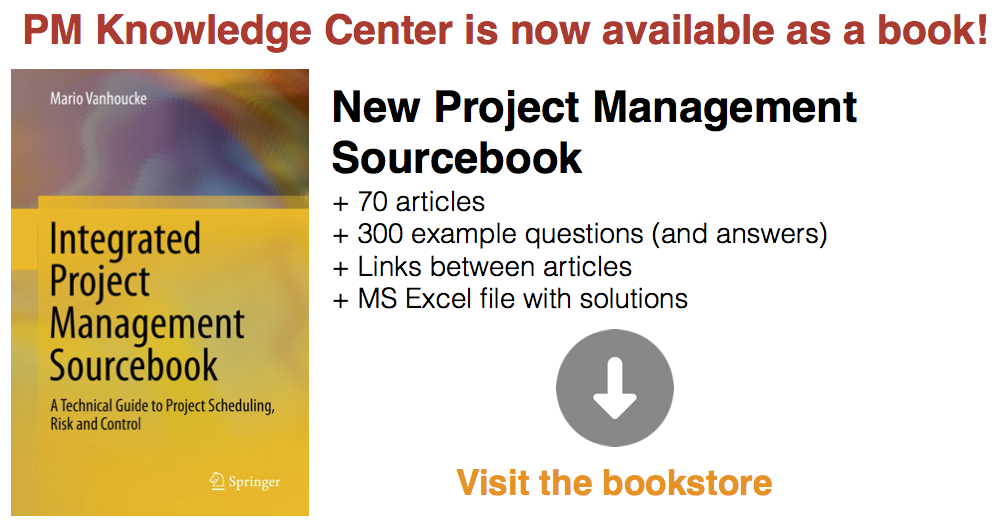The Measurable News
TMN, 2015, Issue 2: Introduction to Earned Duration
Submitted by Mario Vanhoucke on Thu, 06/11/2015 - 19:47EVM Europe conference Initiative achieves stability
Submitted by Mario Vanhoucke on Wed, 04/30/2014 - 15:21Top Five Observations from EVM Europe 2013
Submitted by Mario Vanhoucke on Sun, 02/16/2014 - 15:34TMN, Issue 4, 2013: Measuring Schedule Adherence
Submitted by Mario Vanhoucke on Wed, 11/20/2013 - 10:04CPM global initiatives continue to evolve
Submitted by Mario Vanhoucke on Thu, 10/31/2013 - 11:21TMN, Issue 2, 2013: Project Management using Dynamic Scheduling: Baseline Scheduling, Risk Analysis & Project Control
Submitted by Mario Vanhoucke on Wed, 05/15/2013 - 07:02EVM Europe: Plans for 2013
Submitted by Mario Vanhoucke on Wed, 04/03/2013 - 21:27As readers of the 4th edition 2012, Measurable News would be aware from the article “Top Ten Observations for EVM Europe 2012” by the now current Vice President Communications, Mark Phillips, the EVM Europe 2012 Conference held at the University of Twente in the Netherlands was a small but highly successful conference. The EVM Europe Conferences continue to succeed and develop in spite of the ongoing less than favourable economic circumstances in Europe. This reflects the extraordinary commitment of a growing group of Europeans dedicated to advancing EVM (and associated techniques) research and practice in Europe and beyond.
Top Ten Observations from EVM Europe 2012
Submitted by Mario Vanhoucke on Wed, 01/23/2013 - 08:52TMN, Issue 2, 2012: Dynamic Scheduling: Integrating schedule risk analysis with earned value management
Submitted by Mario Vanhoucke on Tue, 10/30/2012 - 09:11TMN, Issue 1, 2010: Measuring time: An earned value performane management study
Submitted by Mario Vanhoucke on Mon, 10/29/2012 - 15:00© OR-AS. PM Knowledge Center is made by OR-AS bvba | Contact us at info@or-as.be | Visit us at www.or-as.be | Follow us at @ORASTalks


